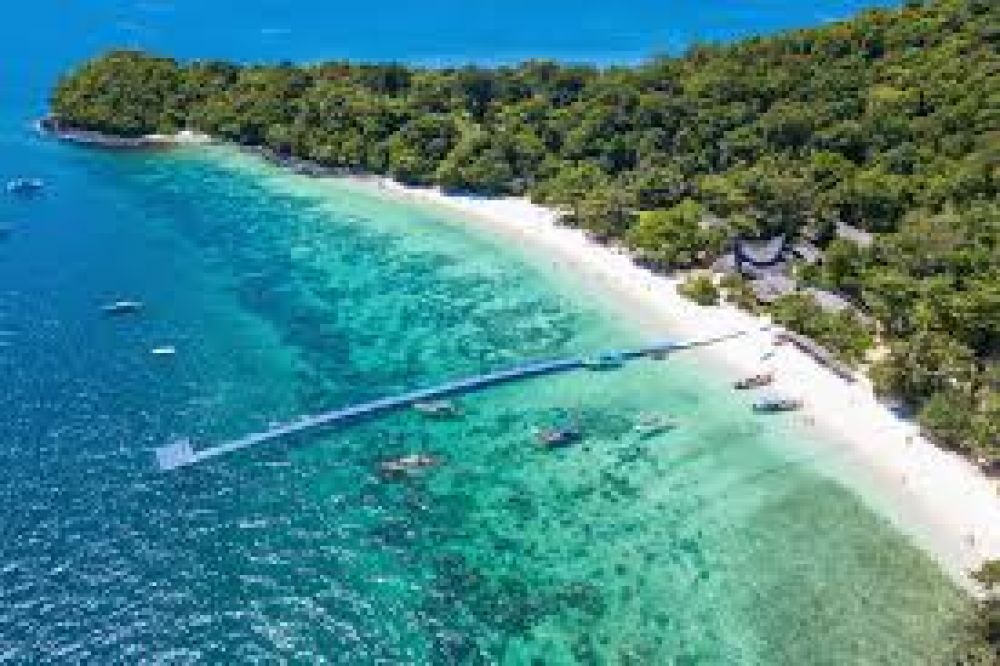

Coral Island, locally known as Koh Larn, is a picturesque island off the coast of Pattaya, Thailand. Renowned for its tranquil beaches, crystal-clear waters, and vibrant marine life, Coral Island has become an integral part of Thailand's tourism tapestry.
The history of tourism on Coral Island can be traced back to the 1970s and 1980s when Pattaya emerged as a significant tourist destination. During this period, Pattaya's reputation as a beach resort grew among Western tourists seeking sun, sea, and sand. The proximity of Coral Island to Pattaya made it an attractive day-trip destination for visitors looking to escape the bustling beaches of the mainland.
Initially, Coral Island catered to adventurous travelers and backpackers drawn to its untouched natural beauty. Small-scale boat operators began to offer trips to the island, and the earliest forms of commercial activity started to take hold. Beachside vendors, modest bungalows, and simple restaurants slowly appeared to cater to the growing number of visitors.
As the years progressed, the island's infrastructure improved, and larger scale tour operators started offering organized trips to Koh Larn. With these developments, Coral Island saw an increase in tourist numbers, prompting a transformation in its services and facilities. The 1990s marked a significant point in the tourism growth of Coral Island, with increased investment leading to better transportation, accommodation, and recreational activities.
Notably, the island's appeal broadened beyond Pattaya, attracting tourists from all over the world. Its reputation was further bolstered by the growth of Pattaya as a family-friendly destination, with Coral Island offering a more relaxed, child-friendly environment.
In recent years, tourism in Coral Island has become more sophisticated, and the amenities have evolved to match the expectations of today's travel-savvy tourists. Visitors can now enjoy a wide array of water sports, including snorkeling, diving, parasailing, and jet skiing. The island's accommodation options range from basic hostels to luxurious resorts, making it accessible for all levels of travelers.
Recognizing the environmental impact of tourism, there have been concerted efforts to promote sustainable practices on Coral Island. Conservation initiatives work to protect the delicate coral reefs and marine habitats that are essential to the island's appeal. Eco-tourism is gaining momentum, with tourists becoming more conscious of their environmental footprint.
One of the latest trends in Coral Island's tourism is the focus on experiential travel. Tourists are looking for authentic experiences that allow them to connect with the local culture and environment. This includes activities like Thai cooking classes, village tours, and eco-friendly tours that explore the island's biodiversity.
Additionally, there is a growing trend for wellness tourism. Coral Island has seen an uptick in interest for health and wellness retreats, ranging from yoga and meditation sessions to detox programs, all set against the backdrop of the island's serene environment.
Digital nomadism has also influenced tourism on Coral Island. With the rise of remote work, more visitors are choosing destinations that offer both leisure and the capability to work online. The island's improving internet infrastructure is accommodating this new wave of travelers who blend work with the pleasure of a tropical locale.
In conclusion, Coral Island's tourism industry has evolved from a niche destination for intrepid wanderers to a multifaceted haven for a diverse array of global tourists. From its burgeoning infrastructure to its commitment to sustainability, Coral Island continues to adapt and thrive as one of Thailand's beloved tourist gems.